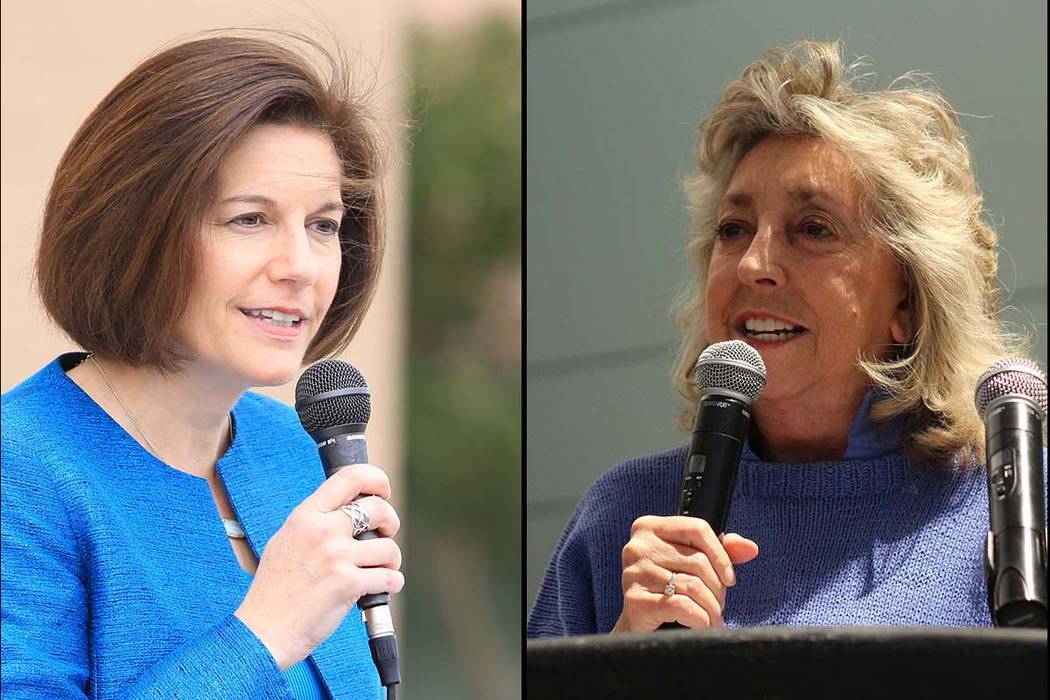Nevada lawmakers back bills to end federal pot industry impediments
Two members of Nevada’s congressional delegation signed onto cannabis-related legislation this week in a push to legitimize the emerging marijuana industry at the federal level.
U.S. Sen. Catherine Cortez Masto and Rep. Dina Titus, both Democrats, co-sponsored bills that would remove federal restrictions that the marijuana industry says hamstring participants from operating as normal businesses.
Twenty-eight states have legalized medical marijuana, and eight of those states — including Nevada — have also legalized recreational use. The moves have created an emerging industry that generates billions of dollars in sales and hundreds of millions in tax revenue for states.
But because marijuana is classified by the federal government as a Schedule I drug — along with heroin, LSD and ecstasy — marijuana companies are in a conundrum. The federal tax code 280E prevents those companies from writing off business expenses, such as rent, payroll and utilities — deductions other businesses are allotted — or accessing banking services or accepting credit cards as payment.
Titus announced Friday that she is co-sponsoring the Small Business Tax Equity Act of 2017, which would amend the tax code so cannabis companies could write off the same expenses as other businesses. The bill was introduced in March by Rep. Carlos Curbelo, R-Fla.
‘Outdated and out of step’
“The tax code is outdated and out of step,” Titus said in a statement. “It is time for Congress to give legal marijuana businesses equal footing under the law. In Nevada, more than 190 marijuana businesses exist and dozens more are expected to form in the coming months. These small businesses deserve access to the same deductions in the tax code that other legal enterprises utilize.”
In the Senate, Cortez Masto and eight other senators who introduced a bill that would give marijuana companies access to banks, long sought by the marijuana industry for both business and public safety reasons.
Banks are wary of dealing with marijuana companies because it requires them to pay an extra fee to the federal government. And there is always the risk the feds could crack down on the industry and freeze or seize assets.
The bill, called the Secure and Fair Enforcement (SAFE) Banking Act of 2017, would prohibit federal regulators from penalizing banks who handle money from a legitimate marijuana business licensed and operating in a state where cannabis is legal. If passed, it would end the cash-only era for the industry.
“We need to put the right infrastructure in place for the marijuana industry to operate legally and securely,” Cortez Masto said in announcing the bill. “Allowing lawful cannabis-related businesses access to the mainstream banking system will alleviate security concerns and create more regulatory certainty for Nevada dispensaries and related providers, as well as the banking system.”
Contact Colton Lochhead at clochhead@reviewjournal.com or 702-383-4638. Follow @ColtonLochhead on Twitter.
216
The number of marijuana businesses approved to operate across Nevada as of May 10, 2017, according to the Nevada Division of Public and Behavioral Health. This number is expected to grow significantly once the state begins issuing permanent recreational marijuana licenses in 2018.




























